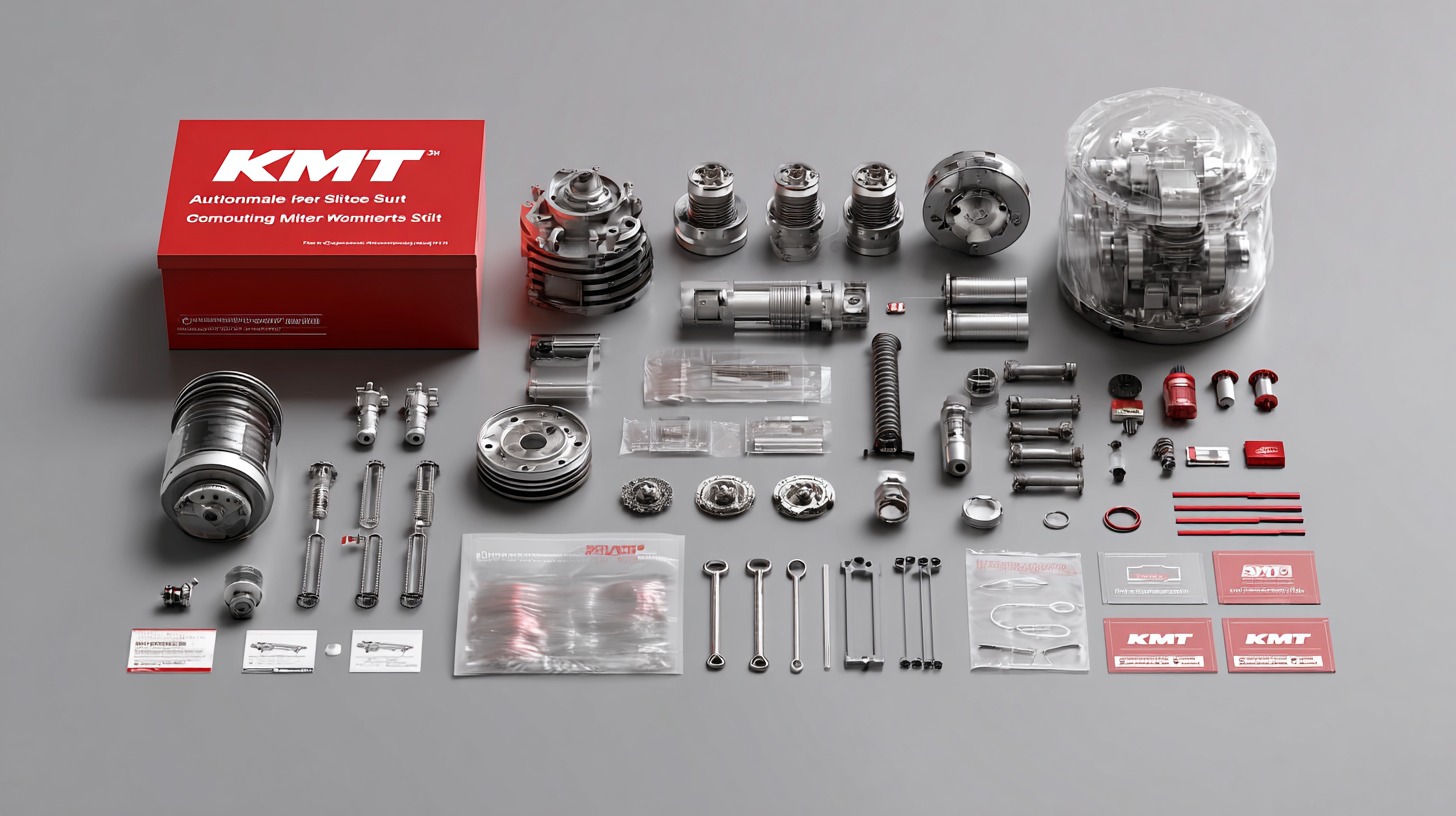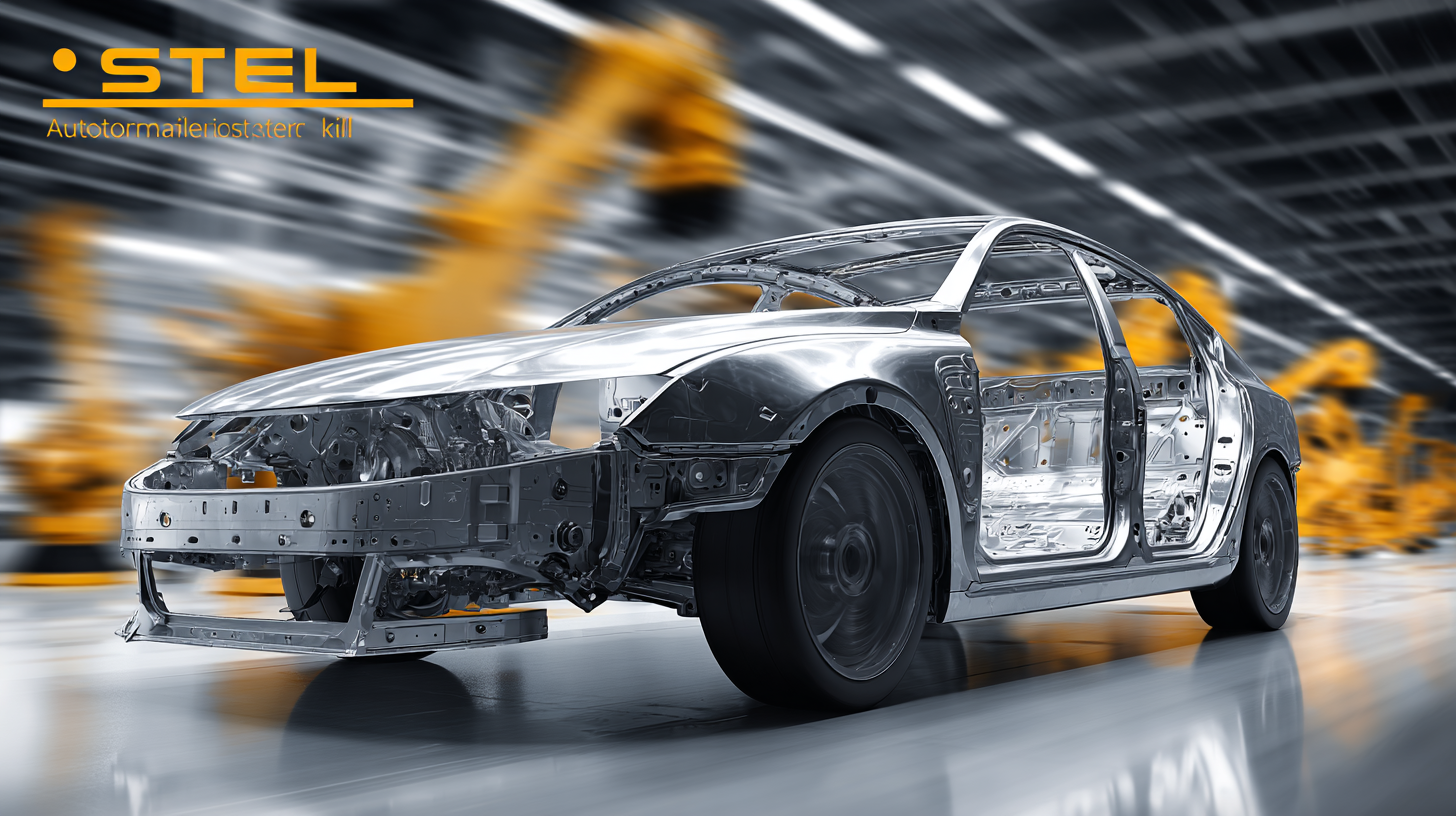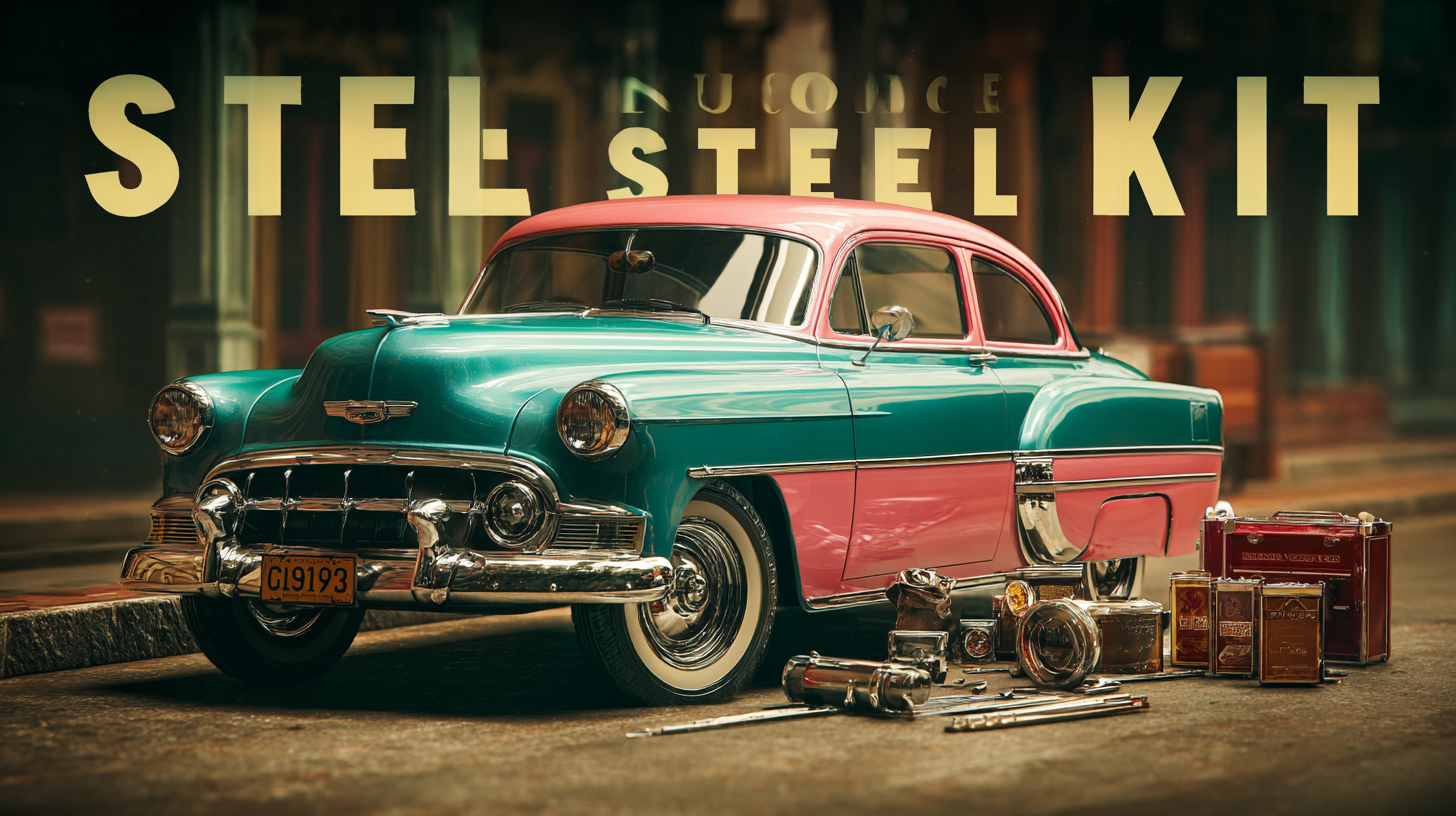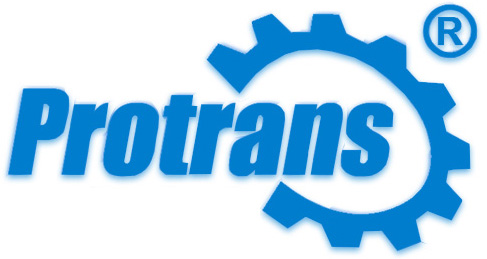The automobile industry is experiencing a significant transformation, driven by the demand for high-quality manufacturing and innovative materials that can meet global standards. According to the latest report by the International Organization of Motor Vehicle Manufacturers (OICA), global automobile production reached approximately 78 million units in 2021, and this figure is poised to increase as markets expand. Central to this growth is the selection of the right materials, particularly the Automobile Steel Kit, which plays a pivotal role in enhancing vehicle safety, performance, and sustainability. With a staggering 70% of a vehicle's weight often comprised of steel, the importance of choosing high-quality, globally compliant steel kits cannot be overstated. This blog will explore the challenges manufacturers face when selecting the best Automobile Steel Kit for diverse markets and highlight strategies to overcome these issues while ensuring product excellence and market competitiveness.

Selecting the appropriate automobile steel kit for different global markets requires a nuanced understanding of several key factors. First and foremost, manufacturers must consider regional regulations and safety standards, which can vary significantly from one country to another. These regulations not only dictate the specifications of the materials used but also influence the overall design and functionality of the kits. For instance, markets that prioritize sustainability might lean toward eco-friendly materials, while others may focus on performance and durability.
Secondly, cost-effectiveness plays a crucial role in the selection process. As highlighted in recent discussions about affordable kit cars, builders are often on the lookout for options that provide quality without a hefty price tag. This balancing act requires manufacturers to innovate and source materials that offer both performance and value. Understanding market trends, consumer preferences, and emerging technologies can help manufacturers create steel kits that meet diverse needs while remaining competitive. Adapting to these varying market inputs is essential for success in the global automobile industry.

When selecting the best automobile steel kit for global markets, one of the foremost considerations must be the evaluation of quality standards and certifications. Different regions impose varying regulations that pertain to automotive materials, and understanding these standards is essential for ensuring compliance and performance. For example, certifications such as ISO 9001 ensure that manufacturing processes meet international quality management criteria, which not only enhances the credibility of the steel kit but also guarantees reliability and safety in its application.
Moreover, third-party certifications, such as those from the Automotive Industry Action Group (AIAG) and other important entities, further validate the materials used. A steel kit that meets these certifications signals to manufacturers that the product has undergone rigorous testing and evaluation. This instills confidence as companies strive to deliver vehicles that not only meet customer expectations but also comply with global safety and environmental standards. As the automotive industry continues to evolve, selecting certified steel kits will be critical for maintaining a competitive edge in diverse global markets.
| Steel Type | Certification | Tensile Strength (MPa) | Elongation (%) | Weight (kg/m2) | Market Availability |
|---|---|---|---|---|---|
| High Strength Low Alloy (HSLA) | ASTM A1010 | 450 | 20 | 3.5 | Global |
| Dual Phase Steel | ISO 9001 | 500 | 22 | 4.2 | North America, Europe |
| High Carbon Steel | EN 10132 | 600 | 15 | 5.0 | Asia, South America |
| Stainless Steel | ASTM A240 | 520 | 30 | 6.0 | Global |
| Micro-Alloyed Steel | API 5L | 480 | 25 | 4.8 | North America, Europe |
Selecting the best automobile steel kit for global markets involves navigating a complex landscape of regional regulations that vary significantly from one country to another. These regulations dictate everything from the types of materials that can be used to the environmental standards manufacturers must meet. For instance, in Europe, stringent emissions and recycling requirements push automakers to choose lighter steel options that reduce overall vehicle weight, thereby improving fuel efficiency and reducing carbon footprints. Conversely, North American regulations may prioritize different aspects, such as durability and safety standards, leading manufacturers to opt for heavier, more robust steel components.
Understanding these regional differences is crucial for automotive manufacturers aiming to be competitive on a global scale. The impact of tariffs, import/export restrictions, and local quality standards cannot be understated. Companies that invest time in comprehensively researching and adapting their steel selections to comply with local regulations not only enhance their market access but also mitigate risks associated with non-compliance. As global markets become increasingly interconnected, staying abreast of regulatory changes will be vital for organizations to optimize their automobile steel kits effectively.

In the evolving landscape of the automotive industry, selecting the right steel kit is crucial for manufacturers looking to optimize both cost and efficiency. A recent report by the World Steel Association highlights that steel remains the most significant material used in automotive production, with approximately 60% of a vehicle’s weight composed of steel components. This statistic underlines the importance of choosing the most cost-effective steel kit, as material costs can significantly impact overall vehicle pricing and profitability.
When comparing various automobile steel kit options, manufacturers must consider not just the upfront costs but also the long-term value. According to a study by MarketsandMarkets, advanced high-strength steel (AHSS) continues to gain traction due to its ability to enhance safety while also reducing weight, which can lead to improved fuel efficiency. The report suggests that while AHSS kits may have higher initial costs, the potential savings in fuel efficiency and reduced emissions contribute to greater cost-effectiveness over a vehicle's lifecycle. As competition intensifies in global markets, choosing the right automobile steel kit becomes essential, demanding thorough analysis and consideration of all available options to achieve optimum financial and operational outcomes.
Adapting steel kit designs to meet the demands of global markets requires an understanding of regional preferences and regulations. According to the World Steel Association, the global steel demand is projected to reach 1.7 billion tons by 2025, with automotive applications being a significant contributor. Markets differ greatly in terms of safety standards, environmental regulations, and consumer preferences. For instance, North American and European markets emphasize high-strength steel for safety and fuel efficiency, while Asian markets may prioritize cost-effectiveness and lightweight materials to enhance vehicle performance.
To effectively address these diverse requirements, manufacturers can adopt a modular approach to their steel kits. This involves creating flexible designs that can easily be customized for various markets without compromising structural integrity. For example, research from Smith Research indicates that companies implementing advanced manufacturing technologies, such as automation and additive manufacturing, can reduce production costs by up to 20%. By leveraging these technologies, automotive manufacturers can streamline their steel kit offerings while maintaining compliance with local standards and catering to specific consumer needs, thus gaining a competitive edge in the global market.
TradeManager
Teams
VKontakte

